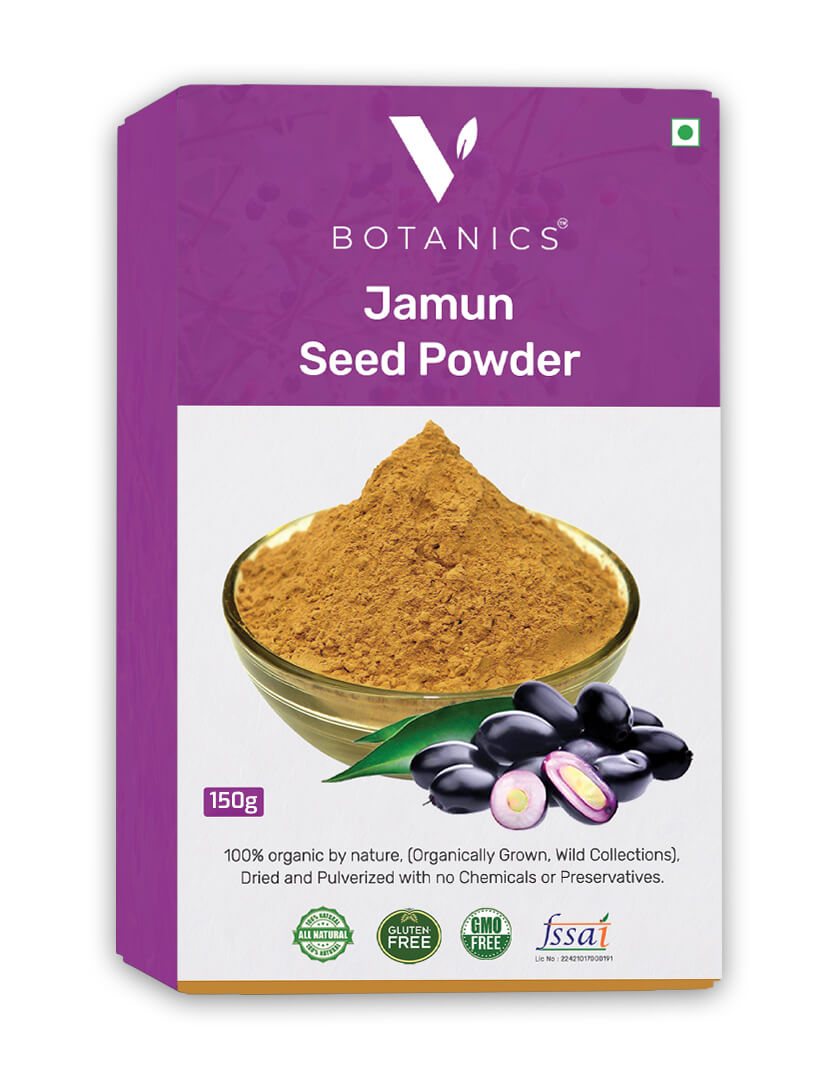Jamun Seed ( Syzygium cumini )
Powder

Syzygium cumini L. (synonym: Syzygium jambolana, Eugenia jambolana, Eugenia cumini) belong to polyembryonic species of the family Myrtaceae, commonly known as Indian blackberry or Jamun. S. cumini, an evergreen tropical tree, is native to Indian subcontinent and naturalized in America, Africa, and Australia (Aqil et al., 2015). The oblong berries having deep purple to violet color with pinkish pulp are widely consumed as fruit. In addition to its nutraceutical value, fruits are used in traditional medicine for treatment of various diseases
Usage & Benefits
-
May Help Manage Diabetes
-
Jamuns are best known for their ability to regulate blood sugar level. Macrobiotic Nutritionist and Health Practitioner, Shilpa Arora says, "Jamun seeds contain compounds called jamboline and jambosine that reduce the rate at which sugar is released into the bloodstream. Jamun seeds also increase the production of insulin.
-
Boosts Stomach Health
-
Jamun seeds can be used to manage a number of stomach-related issues effectively. Jamuns are rich is fibre content that helps improve the functioning of the digestive system. Jamun seeds can also be used as oral medication to combat sores, inflammation and ulcers in the intestines.
-
Helps Regulate Blood Pressure
-
Jamun seeds may prove to be a boon for people dealing with hypertension as the seed extract of the fruit contains a type of antioxidant called ellagic acid that may help in keeping a check on rapid fluctuations of blood pressure.
-
May Boost Immunity
-
Jamun seeds contain powerful antioxidants like flavonoids and also phenolic compounds that help keep harmful free radicals at bay.
-
Aids Weight Loss
-
Since jamun is rich in fibre, it may help keep tummy sated and propel weight loss process.
How to Use
There are many ways of consuming jamun seed and its powder form. You can make smoothies, have it straight with water or include in meal recipes. Find the one that suits you best and include jamun seeds in your diet for healthy living.
